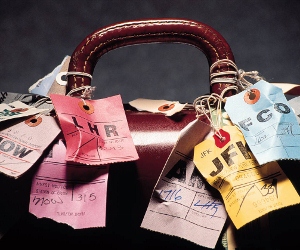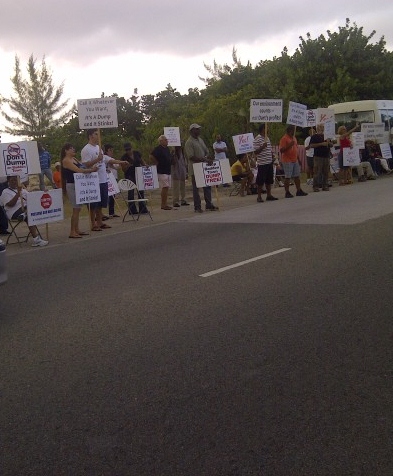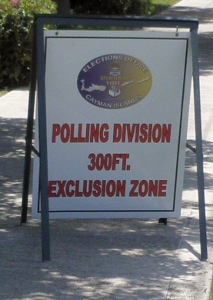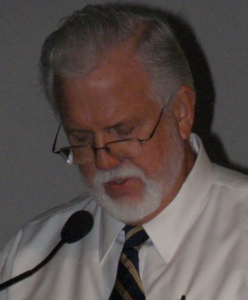Archive for November 19th, 2012

Cop denies $500 bribe charge
(CNS): A 28-year-old police officer made his first appearance in court Monday to face bribery charges under the country’s anti-corruption legislation. Elvis Ebanks from George Town is accused of extracting a $500 bribe from a Filipino national in exchange for not investigating how he came into possession of a phone that belonged to a third party. Ebanks, who is now suspended from duty, has denied the allegations, claiming in a police interview that the money he reportedly took from the complainant was a loan. The officer was released from custody after his appearance in Summary Court and was bailed to appear before the Grand Court on 30 November.
According to the crown’s case, Ebanks took money from a man described as a “vulnerable victim”, who was foreign national on a work permit with a limited support network in Cayman, which was why he was selected.
Prosecuting counsel told the court that the incident took place earlier this month shortly after the owner of the missing phone discovered it was in the possession of the complainant. It is not clear if the phone was lost or stolen or how the complainant came by it but when he was asked by PC Ebanks, who answered the report, to hand over the phone, he did so without question. The original owner then told PC Ebanks that, with his phone returned to him, he had no desire to take the matter any further.
However, the crown says that PC Ebanks put the Filipino national into the police car and drove away without making an arrest. The prosecuting counsel claims the officer, in an attempt to intimidate his victim, drove him around telling him that he could be in a lot of trouble over the phone and could go to jail for more than ten years, before he asked him for money.
The victim is alleged to have handed over some $140 in cash and arranged to meet PC Ebanks on another occasion to pay him a total of $500. However, after PC Ebanks dropped the victim home, the man called the police and reported the incident.
When Ebanks made contact with his alleged victim during a call, which the court heard was recorded, the men arranged to meet at Countryside Village, where the crown said the meeting was caught on CCTV. After the cash was said to have been handed over by the bribery victim, officers from the RCIPS blocked the exit from the shopping centre and arrested PC Ebanks as he attempted to leave.

DP racks up $200k travel bill
 (CNS): Since taking up office in May 2009, the deputy premier has taken 21 different overseas trips to countries across the globe, from Sri-Lanka to the Pacific Islands. Juliana O’Connor-Connolly, who is also the minister for agriculture, works and communications, has racked up a travel and accommodation bill for her ministry alone of more than CI$213,000. Travelling in the Americas and the Caribbean, Africa, Asia, Europe, and the Middle East, she has attended conferences on telecommunications, agriculture, women’s affairs and Commonwealth Parliamentary Association meetings, spending an accumulative total of more than five months abroad.
(CNS): Since taking up office in May 2009, the deputy premier has taken 21 different overseas trips to countries across the globe, from Sri-Lanka to the Pacific Islands. Juliana O’Connor-Connolly, who is also the minister for agriculture, works and communications, has racked up a travel and accommodation bill for her ministry alone of more than CI$213,000. Travelling in the Americas and the Caribbean, Africa, Asia, Europe, and the Middle East, she has attended conferences on telecommunications, agriculture, women’s affairs and Commonwealth Parliamentary Association meetings, spending an accumulative total of more than five months abroad.
According to details released to CNS following a freedom of information request, the most expensive trip has been a two week plus trip to Doha, Qatar, for the 25th Universal Postal Congress, which took place in September and October this year. The minister spent more than $41,000 on flights, accommodation and expenses for herself, the ministry’s chief officer, Alan Jones, and her executive aide, Paul Leonce.
A spreadsheet from the ministry documents the deputy premier’s overseas trips since she took office. The minister has attended a number of Commonwealth Parliamentary meetings, as well as various conferences. She spent just over $12,000 on a ten day trip to Sri Lanka for the CPA conference in September of this year, where she was accompanied by her executive aide. Another costly CPA trip was to Tonga in April 2012 for two weeks, where she was again accompanied by Leonce and where flights, accommodation and expenses were just under $12,000.
In February last year, the deputy premier racked up a travel bill of over $35,000 when she, her executive aide, thepermanent secretary and UDP backbench MLA Cline Glidden spent over one week in Barcelona at a telecoms conference. Back in September 2010 O’Connor-Connolly also spent well over $10,000 on a trip to Kenya for a CPA conference, and was again accompanied only by Leonce, her executive aide.
The various trips began within nine weeks of O’Connor-Connolly taking up office, when she took a five day trip to Jamaica for the Denbigh Agricultural show, when she was accompanied by her permanent secretary at the time, the deputy permanent secretary, her personal assistant and the director of agriculture. Although there was no cost to attend the conference, the trip cost the public purse almost $11,000. In November and December of her first year in office the minister racked up a further $25,000 on OTCC meetings in both Anguilla and London.
With a tight budget, government expenses and overseas travel has been a controversial subject, with the premier in particular coming in for some serious criticisms. As the tourism and finance minister, McKeeva Bush has persistently defended his extensive travel budget, stating that he must go overseas as often as he does in order to protect the offshore sector and generate new business for the local economy.
However, the deputy premier has said little about her own relatively busy travel schedule, which critics have said is even more surprising, given that her portfolio, which includes district administration, public works, lands and agriculture, has no international business.
See full details below of the trips taken by the deputy premier since taking office.
Related articles:

Expanding & rebalancing our electoral & tax systems
As we head towards the 2013 election, it is opportune to consider how our present electoral system (regardless of the number of MLA’s, the number of districts and the number of votes per voter — subjects for another day) fits with the way our Government raises (and spends) its revenue.
The short answer is that there is a growing misfit. We have a worrying misalignment of revenue generators and revenue spenders. This is a very significant headwind to getting improved performance, responsibility and accountability in our elected Government. I believe that the situation could be much improved by expanding the electoral roll and by rebalancing Government’s revenue sources.
Taxation should be fair and non-discriminatory, should cause the least disruption to the economy and should be efficient to collect and enforce. It is also broadly accepted that those who pay taxes should have representation. This in turn means they should have the right to vote for (or against) the people who represent them and impose and spend the taxes. This is how civil society can properly determine the services it wants from its government and is willing to pay for and can better restrain the instinctive “tax (or borrow) and spend” habits of its politicians and bureaucrats. These principles should apply no less where the taxation is indirect as is the case in Cayman.
The qualifications to be a voter here are that the person must be Caymanian, aged at least 18 and resident in Cayman (and have been resident in Cayman for two out of the previous four years).
It is now not usually possible to become Caymanian without also being a BOT citizen. A person who is a BOT citizen may apply to be Caymanian after they have resided in Cayman for at least 15 years. Alternatively, they may do so 5 years after they received their BOT citizenship. This citizenship can be applied for after 5 years residence, one of which must be “free of restriction”, i.e. full permanent residency (PR) (not a work permit) is a prerequisite. For this purpose, full PR now typically requires 8 years residence with a work permit (less if you secure it as an investor/person of independent means). So a total outsider, arriving in Cayman today on a work permit, could in theory apply to become Caymanian after about 13 years (there are a number of other (quicker) ways to be or to become a Caymanian, through descent, marriage, etc). That seems far too long for someone who has made Cayman their home, is contributing to the community and to Government revenue, to wait to vote.
We can see the result in the size of the electoral roll. As of 1st October 2012, there are 15,292 voters representing about 36% of the total adult population of around 43,000 (there are around 12,000 minors). In the 2009 elections 12,287 people voted, i.e., around 80% of those registered at the time. The result is that around 29% of residents over the age of 18, i.e., less than one third, voted to elect the Government that decides how to raise revenue and how to spend it. This seems badly out of kilter.
We should seriously consider expanding those eligible to vote either by reducing the time it takes to become Caymanian or by including those who are not (yet) Caymanian, but have PR. There are about 5,000 adults with PR. Permitting them to vote would significantly enhance the voice of the revenue generators and their ability to sensibly influence both who gets elected and how these representatives decide that revenue is to be to be raised and spent.
In addition to expanding the electoral roll, we should also broaden and rebalance our revenue base. It is becoming increasingly clear that our principal revenue sources (tourism and financial services) are too narrowly based and risk being maxed out, and regardless of how much excessive public spending and waste can be reduced (subjects for another day). And there is a serious risk of diminishing returns … our tourist visitors and financial services users will “vote” with their feet and go elsewhere, on the basis we are simply too expensive and there is better value elsewhere. So we need to exercise serious restraint in increasing anti-competitive fees on these two key revenue generators. Indeed, we should strive to reduce these fees in order to encourage more activity in these areas.
It is also vital that we develop alternative (not simply additional) and sustainable revenue sources and, most importantly, those that include a greater contribution from the sections of our society (whether Caymanian or not) that are not currently contributing an appropriate (“fair”) share of the costs of running the Islands, yet nevertheless enjoy the significant benefits. Although still an anathema to many, the logical road leads to a sensibly and sensitively structured community service (SCS) charge tied to real estate. I stress that this SCS should replace/reduce existing fees and charges, not simply be on top of them.
If we take the steps described above, we will have a much greater proportion of our society with real “skin in the game” and thus with a much greater incentive and ability to reject the siren calls of politicians who promise more spending, to scrutinize closely calls from politicians for more taxes to pay for that spending and to secure effective performance and accountability from our politicians and public servants.
This viewpoint is based on an address given to the Rotary Club of Grand Cayman Sunrise on 31October 2012.

Draft policy created on ‘moonlighting’ civil servants
 (CNS): The government has come up with a draft policy which will cover the controversial issue of work that civil servants do outside of their public sector employment. The policy was discussed on 29 October at the regular meeting of chief officers, according to the latest minutes released by the deputy governor’s office. The draft document has not yet been made public and it is not clear what limits will be placed on public sector workers having second jobs or owning businesses. Under the anti-corruption law the issue of conflicts of interest, real or perceived, could cost government workers their jobs at best or, in some cases, charged with a crime.
(CNS): The government has come up with a draft policy which will cover the controversial issue of work that civil servants do outside of their public sector employment. The policy was discussed on 29 October at the regular meeting of chief officers, according to the latest minutes released by the deputy governor’s office. The draft document has not yet been made public and it is not clear what limits will be placed on public sector workers having second jobs or owning businesses. Under the anti-corruption law the issue of conflicts of interest, real or perceived, could cost government workers their jobs at best or, in some cases, charged with a crime.
Although government workers are permitted to have other gainful employment, they need to declare that work to their department heads and must obtain permission.
The minutes also reveal that the civil service heads discussed the general reform strategy for the civil service, for which the deputy governor has said he intends to consult widely throughout the service.
Deputy Governor Franz Manderson also gave an overview of his visit to the UK and said he would like to provide other CO’s and senior members of government with the opportunity to visit the UK to meet with their counterparts in various agencies.
See latest Minutes of the Deputy Governor and Chief Officers’ Meeting for 29 October below.

Activists step up campaign against FCIA
 (CNS): The Coalition to Keep BT Dump Free cancelled a planned meeting with Dart on Friday to discuss its plan to move the George Town landfill to Bodden Town as the group now believes the entire ForCayman Investment Alliance (FCIA) is not legal and falls foul of the Public Management and Finance Law (PMFL). The coalition joined other local activist groups at a rally on Saturday, where campaigners called on government to stop the talks with Dart until all of the proper processes were followed and the people of Cayman could see whether or not the elements of the deal are fair and represent value for money for the public purse.
(CNS): The Coalition to Keep BT Dump Free cancelled a planned meeting with Dart on Friday to discuss its plan to move the George Town landfill to Bodden Town as the group now believes the entire ForCayman Investment Alliance (FCIA) is not legal and falls foul of the Public Management and Finance Law (PMFL). The coalition joined other local activist groups at a rally on Saturday, where campaigners called on government to stop the talks with Dart until all of the proper processes were followed and the people of Cayman could see whether or not the elements of the deal are fair and represent value for money for the public purse.
Around 200 people turned up for the peaceful protest, which was held on the strip of West Bay Road that Dart proposes to close in order to develop a new five-star resort. Speakers included representatives from all of the various campaign groups making up the activist group, Truly4Cayman, as well as the two independent MLAs and potential future candidates at the next election.
Kenneth Bryan, who is expected to run in George town on the PPM ticket this election, said he understood the dilemma faced by the community over the possible jobs that could be created, but he said development had to be done in the wider interest of all Caymanians. The lack of transparency on the deal was the fault of the premier, he said.
“We can’t blame Dart; he is a developer he is doing what he does. It is our government that we should be able to trust to negotiate on our behalf and it is the premier that is letting down the people,” Bryan said.
Moving the dump and the closing the road remain the primary concerns for the activists, but the passage of the Framework for Fiscal responsibility into the PMFL has now put a different light on the situation, explained former minister Charles Clifford, who is now a practicing lawyer. He said that the deal has not followed the requirements of the new legislation and that was why the group cancelled its meeting with Dart and has gone directly to the UK.
Clifford said the coalition had cancelled a Friday meeting with Dart executives, CO Jackie Doak and CEO Mark VanDevelde, until government commissions an independent and unbridled study by the Environmental Advisory Board (EAB) of the best waste management solution for Grand Cayman, along with the broad public consultation recommended by the EAB; and that proper Request for Proposals (RFPs) be issued by the Central Tenders Committee (CTC) following the EAB’s deliberations, including ithe issue of divestiture of significant public assets.
“Until this is done and the proper processes followed, the coalition refuses to legitimize the proposed BT dump by meeting with its proponents,” said Clifford. He said government and Dart have been riding roughshod over due process, transparency, good governance, respect for our fragile environment and, now, the rule of law. “We refuse to be accessories to what we consider an illegal operation.”
Government hasstill not said when it will sign its main agreement with the Dart Group, which covers both the West Bay Road development plans, the future expansion of Camana Bay, as well as the capping and remediation of the George Town dump, in exchange for a new landfill site in Bodden Town.
There has been very little transparency about the details of the ForCayman Investment Alliance in terms of the value of the crown land being swapped with the developer. So far, the review undertaken by PricewaterhouseCoopers also remains under wraps as talks between government and Dart continue.
Although Dart has revealed the broad outlines of the concessions it wants and what it plans to do in return, the emergence of the finer details about the plans in the public domain has been as a result of the preliminary agreement between the NRA, Dart and government being leaked to North Side MLA Ezzard Miller, and then published on CNS.
That leak has now become the subject of a police investigation after the NRA filed a complaint with the RCIPS. It is not clear exactly what law has been broken as the deal involved public assets. Nevertheless, the police have confirmed that are trying to establish if a crime has been committed and if so by whom.

Mac to reveal new MLA seats
 (CNS): The premier is expected to bring the long awaited motion to the Legislative Assembly Monday to deal with where the three new MLA seats will go and how the country will be voting for them in the May 2013 General Election. Given the eleventh hour arrival of the order, which made an appearance in the country’s parliament almost 18 months ago only to be withdrawn due to problems over legal drafting, it is unlikely there will be any surprises. There is no longer enough time for the premier to implement any new ideas, such as those he put forward following the referendum this summer, and the order is expected to add two seats in George Town and one in Bodden Town.
(CNS): The premier is expected to bring the long awaited motion to the Legislative Assembly Monday to deal with where the three new MLA seats will go and how the country will be voting for them in the May 2013 General Election. Given the eleventh hour arrival of the order, which made an appearance in the country’s parliament almost 18 months ago only to be withdrawn due to problems over legal drafting, it is unlikely there will be any surprises. There is no longer enough time for the premier to implement any new ideas, such as those he put forward following the referendum this summer, and the order is expected to add two seats in George Town and one in Bodden Town.
As a result of changes to the country’s legislature in the Cayman Islands Constitution 2009, the parliament will be increasing at the next election by three elected members, from 15 to 18, in order to provide for one more elected minister. This is to replace the financial secretary, who was removed from the Cabinet, with the post of finance minister, which has been held by the premier since the new constitution came into effect.
With the general election set for 22 May 2013, the election writs that define how many candidates will be elected are scheduled to be issued by the governor on 12 December.
This means that the premier must have brought an order based on the Electoral Boundary Commission’s recommendations for debate. Once this motion is passed through the Legislative Assembly, government must then make the necessary amendments to the elections law dealing with the new political landscape — all before the 12 December deadline.
The Boundary Commission’s report, which was made public at the beginning of 2011, made three recommendations. One was for single member constituencies and one man- one vote, which, although it was endorsed by voters in a referendum in July, was not accepted by the premier, who insisted on a majority 'yes' vote by registered voters and not by those who actually went to the polls. So, while those that came out voted in favour, the result did not reflect more than half of all registered voters.
Another recommendation offered by the commission was for the creation of a seventh electoral district with three seats, located between George Town and Bodden Town. However, the premier has previously dismissed that option, though it is always possible that he will change his mind and re-examine that possibility.
Since it is unlikely that he will chose to create a new district so late in the election calendar, the recommendation made by the commission based purely on population count and retaining the current constituency boundaries is expected to be the government’s choice.
This will see an additional seat in Bodden Town and two in George Town, creating what even the premier has admitted is an unsatisfactory situation. With these additions, when the people of Cayman go to the polls in May, voters in North Side and East End will have just a single vote while those in the country’s capital will have six. This will give individual voters in George Town six times the influence on government than their countrymen in the outer districts, purely as a result of their home address.
Although politicians across the political divide recognize this inequality, because of the UDP government’s reluctance to implement one man-one vote, time has run out for other more equitable alternatives to be examined.
Vote in the CNS poll: Who would you rather see as the next premier?

Minister points to violence holding back young men
 (CNS): As Cayman joined over 60 other countries to mark International Men’s Day (IMD), the minister for community affairs pointed to the challenges that face local men and boys. Mike Adam said that, despite the positive path that many men in Cayman have traveled, people now have to come to terms with a variety of negative social issues, including violent crime, that are affecting our young men. The minister said that International Men’s Day provided an opportunity “to highlight men's positive experiences with the broader and ultimate aim of promoting the basic humanitarian values that are necessary to create a healthy society in all areas and for all people.”
(CNS): As Cayman joined over 60 other countries to mark International Men’s Day (IMD), the minister for community affairs pointed to the challenges that face local men and boys. Mike Adam said that, despite the positive path that many men in Cayman have traveled, people now have to come to terms with a variety of negative social issues, including violent crime, that are affecting our young men. The minister said that International Men’s Day provided an opportunity “to highlight men's positive experiences with the broader and ultimate aim of promoting the basic humanitarian values that are necessary to create a healthy society in all areas and for all people.”
As this year’s theme is "Helping Men and Boys Live Longer, Happier and Healthier Lives", and events will focus on efforts to improve male life expectancy, as well as boys' education, challenging the tolerance of violence against men and boys, and promoting fathers as positive role models.
The celebrations will include the 2nd IMD Football Tournament and Expo; an Evening of Supermen: Breaking Stereotypes; and a radio panel discussion to talk about the issues affecting our boys and men.
“These IMD events provide us with an opportunity to engage in positive behaviour with our boys, highlight the men in our communities who are on the right path, and discuss the challenges that get in the way of some of our boys and men becoming the supermen that they were meant to be,” Adam said.
See ministers full message below.